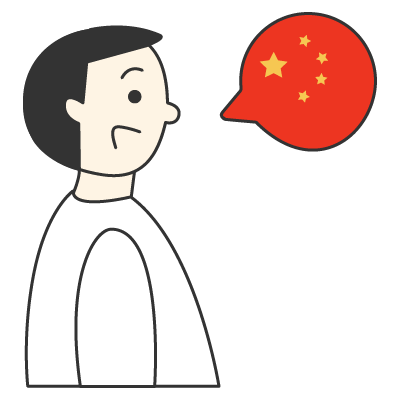The Most Common Chinglish Phrases You Need to Know
When people are learning a foreign language, their learning progress is more or less impaired by the influence of their mother tongue. Chinese students encounter the same problem when they learn English at school. Many expats find the so-called “Chinglish” understandable, but at the same time a bit weird as it doesn’t sound natural. Let’s take a look at five typical mistakes that Chinese people make when they talk in English.

1. Open the TV / Computer
The reason why Chinese people often make such a mistake lies in the fact that “to open” and “to turn on” share the same word in Chinese, which is 开 (kāi). Consequently, you might’ve also heard Chinese people say “close the TV/computer” as “to close” and “to turn off” also share the same word, which is 关 (guān).
2. Yes, I have.
This mistake is more or less related Chinese people’s talking habit. When it comes to questions like “Do you have any siblings?” or “Do you like playing football?”, Chinese people usually answer them with the same verb that is used in the question. Therefore, you might’ve come across the following dialogues:
Q: Do you have any siblings?
A: Yes, I have.
Q: Do you like playing football?
A: Yes, I like.
3. I think he / she doesn’t …
Chinese people say that under the influence of direct translation. There is nothing wrong with the word order if you translate this sentence into Chinese word by word. Meanwhile, more people prefer to say “我觉得他不会加入我们” (wǒ juéde tā bù huì jiārù wǒmen) – “I think he doesn’t want to join us” rather than “我不觉得他会加入我们” (wǒ bù juéde tā huì jiārù wǒmen) – “I don’t think he wants to join us”. Both options are correct in Chinese.
4. Do you like here?
This mistake is again related to direct translation. In Chinese, the word “it” is not commonly used. For instance, “It’s important to learn Chinese.” would be translated as “学习中文很重要” (xuéxí Zhōngwén hěn zhòn yào), which is “Learning Chinese is important”. Consequently, many English learners in China would say “Do you like here?” instead of “Do you like it here?”.
5. I don’t know, too.
It’s a bit hard for some Chinese students to get used to the use of “either” because the word “也” (yě) can mean both “too” and “either” in Chinese. Although they’ve been told many times that “either” needs to be used instead of “too” when it comes to negative statements, it takes time for them to use these two words properly in real-life situations.
To find out more interesting and useful Chinese vocabulary, check out one of our blog posts 5 Ways to Eat in Chinese: Takeouts, Dine-in and More









0 Comments